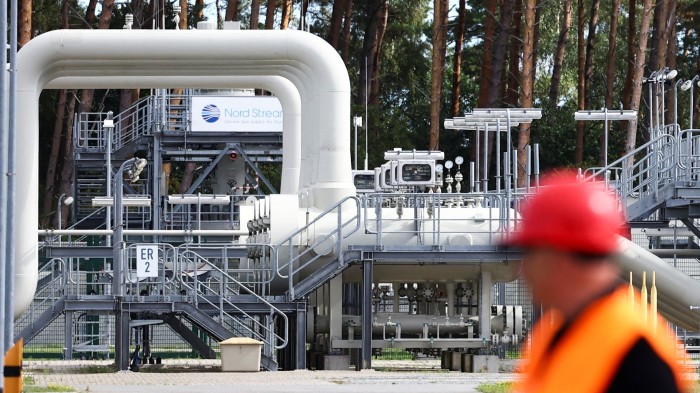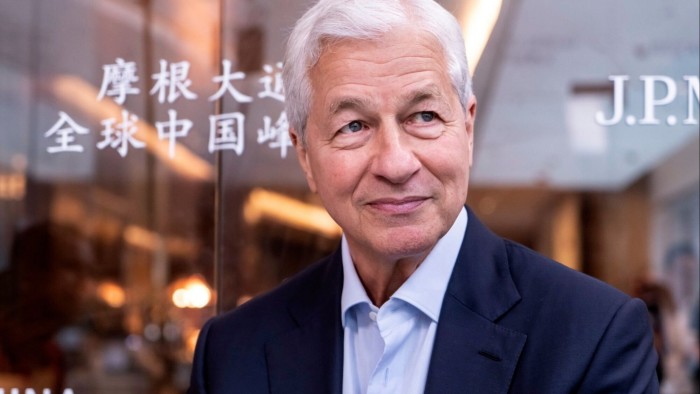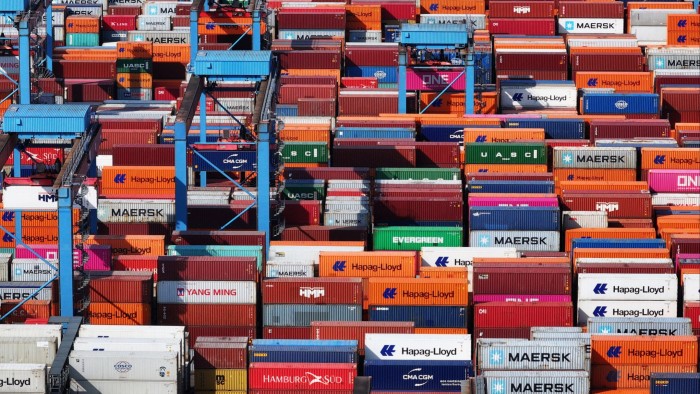Merz backs Nord Stream ban to prevent US and Russia restarting gas link

Stay informed with free updates
Simply sign up to the German politics myFT Digest — delivered directly to your inbox.
German chancellor Friedrich Merz is “actively” backing a proposed EU ban on the Nord Stream pipelines connecting Russia to Germany in a bid to stop any US and Russian efforts to reactivate the gas links.
Merz’s government earlier this week said it endorsed the ban as part of the bloc’s upcoming round of sanctions against Russia for its war in Ukraine. According to three officials familiar with the matter, the chancellor sought to quell any domestic debates about the merits of a potential reactivation.
Reports in the Financial Times in March about Kremlin-linked Russian and US business people seeking to restart the privately owned pipelines prompted Merz to start discussions with officials in Berlin and Brussels about how to prevent that, one of the people said.
Adding Nord Stream to the EU sanctions list “potentially removes a political problem for him”, they said.
The punitive measures are also a way for Merz to “Europeanise” the fate of the pipeline, instead of Berlin facing up potential US and Russian pressure on its own, another official said.
While it has no state control over any of the four pipelines currently disabled after explosions damaged three of them in 2022, Berlin would have to grant a certification for any activation of the gas link.
The EU restrictions would target Nord Stream 2 AG, the Switzerland-based entity that owns the pipelines, and any other companies — Russian or otherwise — that are necessary for its restart and operation, people familiar with the plans told the FT.
European Commission president Ursula von der Leyen last week mentioned Nord Stream as part of the “new package of sanctions” her team was working on. She made those remarks having first consulted with Merz, who gave his support for the move, according to a person familiar with the discussions.
The commission was set to begin formal discussions with EU governments this weekend, the people added. They can only be adopted with the unanimous support of all capitals.
A brainchild of former chancellor Gerhard Schröder, who had close relations with Putin and was later hired by Kremlin-backed Gazprom, Nord Stream was once a symbol of the deep economic ties between Russia and Germany.
Even before Moscow launched its full-scale invasion of Ukraine in 2022, the link was a bone of contention between Berlin and Washington, with the first Trump administration urging then chancellor Angela Merkel to reduce her country’s energy dependence on Russia.
Matthias Warnig, a former Stasi spy and close friend of Putin, has discussed a restart of the pipeline with the backing of US investors, people with knowledge of the talks said previously. Warnig was seeking to leverage US President Donald Trump’s desire for economic rapprochement with Moscow, they said.
“It is correct that the chancellor actively supports sanctions against Nord Stream 2,” a government spokesman said, adding: “One of the aims of our sanctions is to cut off Russia from revenues that could be used to finance its war of aggression against Ukraine in violation of international law. This includes revenues from the export of fossil fuels.”
Trump’s efforts to negotiate a settlement with Russia over Ukraine have rekindled a debate in Germany over Nord Stream and Russia gas, which accounted for more than half of German gas imports before 2022.
A survey by Forsa found that 49 per cent of residents of Mecklenburg-Vorpommern, the German state where Lubmin, the pipeline’s terminus, is located, were in favour of resuming Russian gas supplies.
The far-right Alternative for Germany, which has secured more than 20 per cent of the votes nationwide in February elections, has called for bringing the pipelines back online as the Eurozone’s largest economy grapples with high energy prices and stagnation.
This view is shared by some business leaders and politicians from Merz’s centre-right Christian Democratic Union (CDU) and his centre-left coalition partners, the Social Democrats. The Green opposition has blamed remnants of the “Moscow connection” within Germany’s mainstream parties.
In March, Michael Kretschmer, the CDU prime minister of the east German state of Saxony, said that maintaining punitive measures against Moscow was “completely out of date and does not fit at all with what the Americans are doing right now”.
Responding to reports by the FT and others about Nord Stream, CDU MP Thomas Bareiß in a LinkedIn post saluted “how business-minded our American friends are”.
Dietmar Woidke, the SPD prime minister of the east German state of Brandenburg, called for a normalisation of Germany’s trade relations with Russia after a peace agreement.





